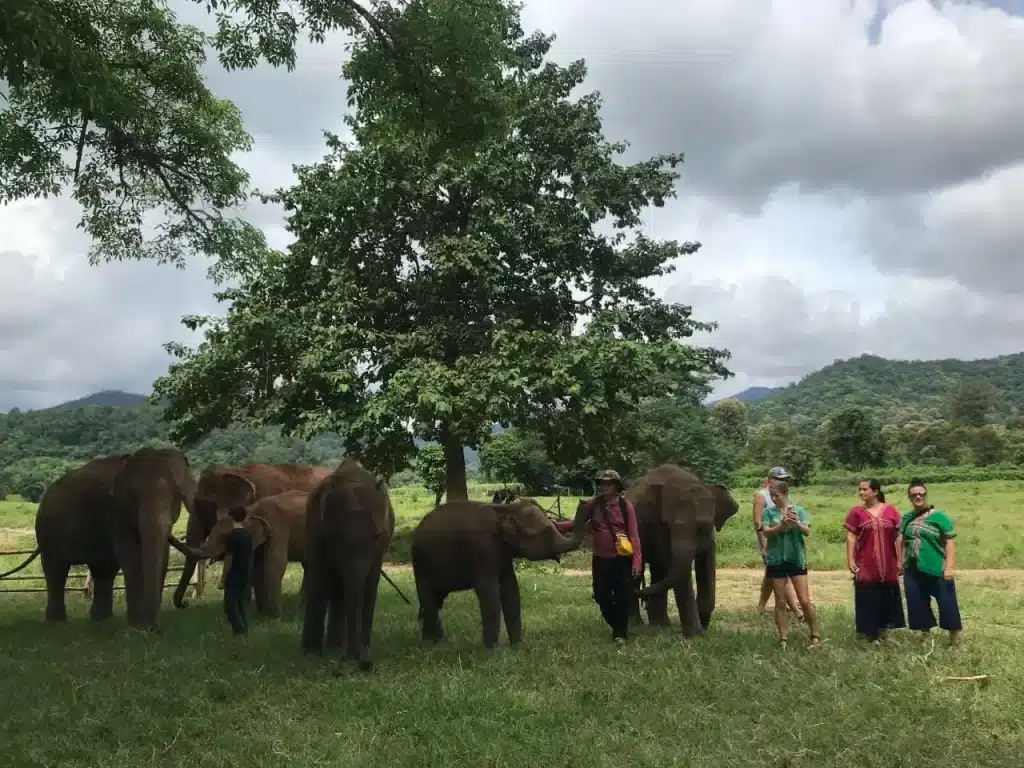
The Role of Elephant Sanctuaries in Thailand: Empowering Conservation and Human-Animal Interaction
Thailand, known for its rich biodiversity and stunning landscapes, has long been a popular destination for tourists seeking a unique wildlife experience. Among the country’s many attractions, elephant sanctuaries are important institutions that play a crucial role in conservation efforts and foster meaningful human-animal interactions. These sanctuaries are more than just tourist attractions; they provide a haven for elephants, promote ethical practices, and create awareness about the challenges faced by these magnificent creatures.
The Rise of Responsible Tourism
Thankfully, a new era of elephant tourism has emerged in Thailand, focusing on responsible and ethical practices. Elephant sanctuaries have been established, offering a sanctuary for rescued elephants to live a more natural and dignified life. The elephant sanctuaries in Thailand prioritize the welfare and conservation of elephants rather than exploiting them for profit. Elephant Freedom Project has been at the forefront, offering a natural nature park for our majestic elephants.
- Preserving Elephant Populations
Elephant sanctuaries in Thailand are at the forefront of efforts to preserve and protect the country’s dwindling elephant populations. Rapid urbanization, deforestation, and illegal wildlife trade have severely impacted these majestic creatures, pushing them closer to extinction.
2. Rehabilitation and Rescuing Elephants from Exploitation
Many elephants in Thailand have been subjected to years of exploitation and abuse in the tourism and entertainment industries. They have been used for riding, performing tricks, and forced to work in logging camps. Elephant sanctuaries play a crucial role in rehabilitating and rescuing these mistreated animals.
3. Promoting Ethical Tourism Practices
Elephant sanctuaries in Thailand are leading the way in promoting ethical tourism practices that prioritize the well-being and conservation of elephants. Unlike traditional elephant camps offering rides and performances, these sanctuaries prohibit activities exploiting or harming animals.
4. Supporting Local Communities
Elephant sanctuaries benefit elephants and support the local communities surrounding them. By providing employment opportunities in areas with limited job prospects, sanctuaries contribute to the economic development of these regions. Residents are employed as mahouts (elephant caretakers), guides, or other capacities within the sanctuaries.
5. Educating the Public
One of the crucial roles played by elephant sanctuaries is public education. Sanctuaries serve as important centers for disseminating knowledge about elephant conservation, habitat protection, and ethical treatment of animals. They offer guided tours and educational programs that give visitors a deeper understanding of elephants and their challenges in the wild.
Elephant Sanctuaries in Thailand -The Benefits for Elephants
Responsible tourism at elephant sanctuaries has numerous benefits for the well-being and conservation of elephants. Firstly, it provides a safe and natural environment for rescued elephants to thrive. Sanctuaries prioritize the elephants’ physical and emotional health, ensuring they access adequate food, water, and veterinary care. Elephants are also free to roam and socialize, mirroring their natural behavior in the wild.
The Benefits for Humans
Responsible tourism at elephant sanctuaries benefits elephants and provides unique and meaningful experiences for humans. Guests can observe elephants in their natural habitat, gaining a deeper understanding of their behavior and ecological importance. This firsthand interaction fosters empathy and appreciation for these magnificent creatures and promotes a sense of environmental responsibility.
Conclusion
Elephant sanctuaries in Thailand are pivotal in empowering conservation efforts and promoting meaningful human-animal interaction. These sanctuaries significantly impact the conservation of Thailand’s elephants by preserving elephant populations, rehabilitating mistreated animals, promoting ethical tourism practices, supporting local communities, and educating the public.


